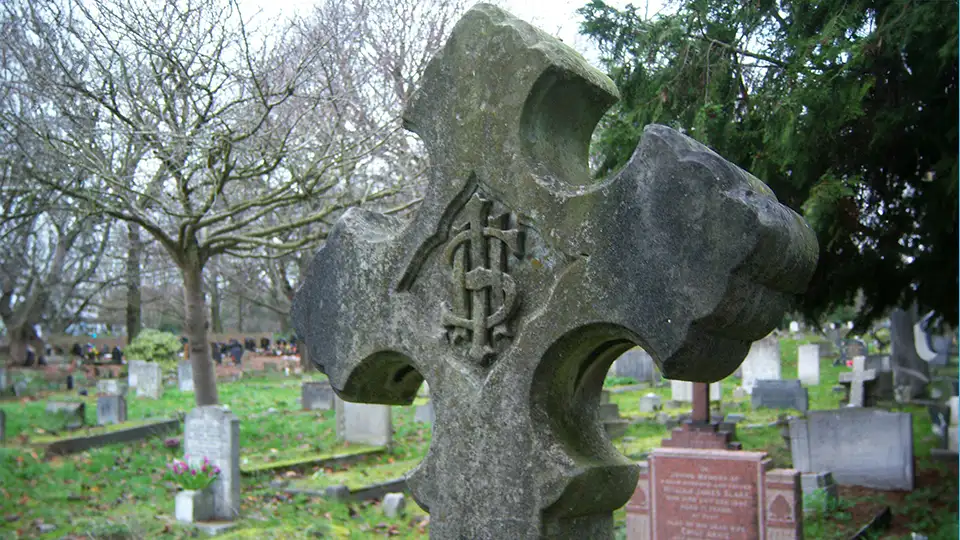
It’s never easy to plan for the passing of a loved one. If you’re wondering how to save on funeral costs in Scotland, then this article is for you. Understanding funeral costs in Scotland is crucial for making informed decisions.
We’ll go over some common questions about paying funeral costs, how to save on costs, and what can happen if your family doesn’t have enough money set aside.
Also, read on to learn more about the process of claiming funeral costs in Scotland so that you can avoid high costs with possible government DWP help with funeral costs and by using low-cost undertakers.
In this guide, we will explore various aspects of funeral costs in Scotland, helping you navigate this challenging time.
Key takeaways
- The Scottish government offers a funeral grant to help families with funeral costs.
- If the deceased had an insurance policy this can pay or help towards costs.
- If no money is available the local council can arrange a public health funeral.
Table of contents
Paying Funeral Costs in Scotland
Many families face challenges in managing funeral costs in Scotland, so understanding your options is vital.
Funeral grant Scotland
The first thing you should know is that the Scottish government offers a funeral grant to help families cover the costs of funerals. This grant can be used to pay for funeral expenses like cremation or burial and other associated costs such as flowers, catering, and transportation. If you were trying to arrange a low-cost funeral in Glasgow, or elsewhere in Scotland then this grant would be worthwhile looking into.
The funeral costs in Scotland can vary widely, and it’s important to understand what is covered by the funeral grant Scotland offers.
This new benefit aims to assist more families with their funeral costs in Scotland, ensuring that financial burdens are eased during difficult times.
The BBC in Scotland wrote a post explaining that the Scottish social security department have started to issue a new benefit to help bereaved people pay a funeral bill. This benefit will offer more financial help for more people.
Understanding your eligibility for the funeral grant would help for managing funeral costs in Scotland effectively.
Who is eligible for a funeral grant in Scotland?
Knowing how much you can receive towards funeral costs in Scotland can significantly impact your planning process.
To be eligible for a funeral grant in Scotland, you must meet several criteria. First of all, the deceased person must have been ordinarily resident or had their primary residence in Scotland at some point before they died. In addition, the family applying for funeral costs has to meet specific income requirements and needs to prove that they cannot manage the funeral costs.
How much money can I get?
The amount of money you can receive from a funeral grant in Scotland varies depending on your income and other factors. However, the maximum funding/grant available is £812 if you have children and are elegible.
Look online or call the funeral grant Scotland phone number to be sure about the amount you’re likely to receive.
You can contact your local social work department to apply for a funeral grant, which can help alleviate some funeral costs.
What happens if i dont have enough money?
If you don’t meet the eligibility requirements for a funeral grant, you may still be able to get financial bereavement help from other sources. For example, if you have savings or insurance policies that cover funeral costs, you can use those to pay for the funeral. You may also take out a loan to cover the cost, although this should only be thought of as a last resort as getting into debt is not advised. Your local council can also arrange a public health funeral if no money is available for the funeral.
How do I apply for a funeral grant?

You can contact the Scottish government to apply for a funeral grant. You will need to provide information about yourself and the person who died, including their date of death and national Insurance number.
Additional ways to raise money
If you don’t want or aren’t able to get a funeral grant, there are other ways you can pay for your loved one’s funeral. You could sell possessions or ask if anyone else would like to contribute towards the cost of the service. Online crowdfunding may be another way. The Government budgeting loan is a source to borrow money, although borrowing money and getting into debt should be a last resort.
Being proactive in understanding how to manage any funeral costs in Scotland will be beneficial to your overall spending.
How to claim funeral costs in Scotland?
Its possible to claim funeral costs in Scotland if the deceased person had any life insurance, their beneficiaries might claim funeral costs from the policy. The steps to follow to claim the costs include:
- Gathering evidence of the funeral costs, such as receipts and invoices
- Contacting the insurance company to start the claims process
- Providing information about the person who died, such as their date of death and national insurance number.
Other ways to save on funeral costs in Scotland

You can’t avoid funeral expenses in Scotland after losing your loved one. “How much is a burial plot in Scotland” is a searched for term. The average cost of a funeral in Scotland is £4345*, but this can vary depending on the type of service you choose, for example burial or cremation. Cremation is still considered to be the lower cost. There are several ways to reduce the cost of a funeral, including:
Asking funeral directors for a price list
You can obtain price lists from a funeral director before making a decision. This will give you an idea of the cost range and compare prices. The most common fees incurred from undertakers include:
- Funeral Fee: This fee stands for standard services like storing the deceased, funeral planning, processing death certificate copies, securing crucial permits, preparing notices, & co-ordinating funeral plans with the cemetery or other third parties.
- Fees For Other Optional Services/Goods: These charges cover the optional services/goods you may wish to purchase, such as transporting the deceased’s remains using a limousine, organising flowers, reception venue and more.
How to choose an affordable funeral director
Affordable Scottish funeral directors are listed by following the link
- The best way to save costs is to use a low-cost undertaker
- Check their reviews to see what other people are saying about them.
It’s vital to be proactive and know your options so that you can find an affordable funeral director who can provide what you need at a fair price. By following this article, you’ll be able to plan a beautiful and affordable funeral service without breaking the bank.
A burial service or cremation service?

When planning a funeral, it’s essential to understand the difference between a burial service and a cremation service. A burial service involves burying the body in a cemetery, while a cremation service incinerates the body and leaves the ashes behind.
If you’re looking for ways to save on funeral costs in Scotland, cremation might be the best option for you. Cremations typically cost less than burials, and they offer many of the same options. For example, you can still have a funeral service, memorial service, or celebration of life if you choose cremation. You can also choose to bury the ashes or scatter them in a meaningful place. A cremation is the best way for the cheapest possible funeral.
Reducing cremation funeral costs
You have several options on how to cut funeral costs in Scotland if you choose cremation. Here is how you can reduce cremation costs:
- Use a direct cremation service: Direct cremation means that you don’t have to hold a funeral or any type of memorial service. This could be helpful if your loved one didn’t want anything lavish and expensive. You will still need to pay for the costs associated with transporting the body from the place of death, paperwork, urn fees, and cremation fees. You can often save money by using a direct cremation service with a low-cost undertaker.
- Hold the service at your home instead of a cemetery: If you want to have a small, intimate ceremony with just close friends and family, you can have the service at home. This will save on funeral costs, but you will need to ensure enough space for the service and that you have completed all the necessary arrangements.
- Keep the number of attendees to a minimum: Close friends and family, this means fewer expenses for food and drinks if having a wake after the funeral.
Reducing burial costs
You have several options on cutting funeral costs in Scotland costs if you choose a burial funeral. Here is how you can reduce burial funeral costs:
- Have the service at a cemetery that is not as popular or well known
- Purchase a grave site that is less expensive
- Choose a cardboard or less expensive coffin
- Forgo the use of an undertaker and make all the funeral arrangements yourself (DIY funeral). This will require more time and effort on your part, but it will save you a lot of money.
- Have the service at your home if possible
- Limit visitation to only close family and friends, rather than everyone you’ve ever known. This will reduce how many people attend the funeral, which means fewer expenses for food and drinks if having a reception after.
Reduce memorial costs
Here are various ways on how to reduce memorial costs:
- Plant a tree instead of stone memorials
- Create a photo memorial
- Use donations to hold the ceremony if you cannot afford it yourself
Consider using your own vehicles
It is possible to use your own vehicles for the funeral, saving money on rental costs. You can only rent a hearse to carry the deceased and ask the remaining procession to use personal vehicles.
With careful planning, you can significantly reduce your funeral costs in Scotland.
Donate the body to science
Reducing funeral costs in Scotland can be achieved through various means; being informed is the first step.
Donating your body to science is one of the best ways to reduce possibly all funeral costs. Most institutional anatomical donation programs stand in for cremation & transportation expenses. Donating your body to medical science is something that has to be arranged in advance, through various paperwork.
Avoid embalming if possible
Embalming is one of the most popular methods to preserve a deceased person. However, embalming is not required by law in Scotland, and it is also not necessary for many funerals. In fact, unless absolutely necessary, embalming can be avoided.
Purchase the urn/coffin online
If you want to save on funeral costs, purchasing the urn or coffin online is a great option. You can choose from many types of materials, colours and designs at your convenience & have it delivered right to your doorstep.
Select free venues for the funeral service
Funerals do not have to be held in a cemetery chapel. Many accessible/free venues are available, such as parks, community centres, and churches. These venues can save you a lot of money on the overall cost of the funeral.
Cut back or do not have flowers

Flowers are expensive and if you want to save money, cut back or do not purchase. You could use flowers taken from your garden if available. Giving some of the saved money to a charity that the deceased was fond of, or put it towards the reception or memorial service.
Choose cardboard coffin for direct cremation

Choosing a cardboard coffin for direct cremation is much cheaper than selecting a wooden one. If you are looking for ways to save money on the funeral, this is a great option. The most expensive coffin does not mean that it is best for your loved one or even for their memory. Many people decorate a cardboard coffin by painting with water-based paint to personalise it.
Evaluate undertaker packages carefully
When evaluating undertaker packages, make sure to read what the package you are interested in purchasing contains.
DIY funeral
Rather than employing an undertaker, you can do the entire job independently. The search term ‘cheap funeral diy’ is not as hard as it sounds to organise, and often means spending less money overall. You can even organise a home funeral.
Conclusion
Generally, a funeral is a long, expensive process. However, with a bit of planning and organisation, you can cut back on funeral costs in Scotland without sacrificing the memories or dignity of your loved one. A cheaper Scottish funeral does not mean a poor quality funeral!
Remember that managing funeral costs in Scotland can be done through effective planning and support.
By understanding the various factors involved, you can better navigate funeral costs while honouring your loved one.



